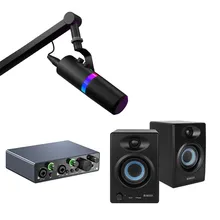Understanding Vehicle Battery Chargers
An indispensable tool for the upkeep and extension of automotive battery life, a vehicle battery charger is tailored to accommodate a diverse array of vehicles, including passenger cars, motorcycles, trucks, and electric vehicles. These devices are pivotal for car owners, mechanics, and commercial fleet operators, ensuring dependable ignition and efficient vehicle performance.
The fundamental operation of a vehicle battery charger is straightforward: it harnesses electricity from an external source, such as a mains outlet or the vehicle's own electrical system, and channels it into the battery. The charger is equipped with mechanisms that control the flow of voltage and current to prevent overcharging and potential damage. Advanced models may also feature temperature and voltage checks, a variety of charging modes for different battery types, and a desulfation phase to restore aging batteries.
Contemporary chargers are increasingly integrated with intelligent technology that interfaces with the vehicle's onboard computer, offering insights into the charging process and flagging any issues. This intelligent charging not only streamlines the process but also bolsters safety by mitigating the risk of overcharging. With technological progress, chargers now frequently support rapid charging without undermining battery longevity.
Varieties of Vehicle Battery Chargers
There is a plethora of vehicle battery chargers available, each designed to meet specific requirements and applications. Common varieties include:
- Portable Chargers: Compact and often battery-operated, these chargers are perfect for emergency situations or for a quick power boost while on the move. They are particularly useful for motorcycles, personal watercraft, or as a standby option for passenger vehicles.
- Automatic Chargers: These chargers, embedded with microprocessors, autonomously manage the charging cycle to avert overcharging, making them ideal for ongoing battery maintenance without manual oversight.
- Smart Chargers: Linked to a smartphone application, these chargers allow users to supervise and manipulate the charging process from afar. They often come with added functionalities such as charging schedules and are geared towards electric vehicle owners with domestic charging setups.
- Fast Chargers: Designed to expedite the charging process, these chargers significantly cut down the time required to replenish a vehicle's battery. They are a common sight at service stations or among drivers needing a swift recharge between journeys.
- Solar Chargers: These chargers employ photovoltaic cells to convert solar energy into a consistent, albeit gradual, charge. They are especially valuable for vehicles that see infrequent use or for powering outdoor machinery like boats or recreational vehicles.
Selecting the Right Vehicle Battery Charger
Identifying the most suitable vehicle battery charger involves a thorough evaluation of several key factors:
-
Vehicle Type: Chargers are crafted with specific vehicle categories in mind, with distinct differences in power output and charging capacities between those intended for electric cars, motorcycles, or passenger vehicles.
-
Usage Scenario: The environment in which the charger will be employed, be it a professional auto repair shop or a home garage, will dictate the type of charger required, as well as additional features such as portability or the ability to charge multiple batteries simultaneously.
-
Charging Output: It is crucial to choose a charger whose output voltage and current align with the vehicle's charging specifications. Opt for a charger that offers multiple charging modes if you expect to deal with a variety of battery types or devices with differing power needs.
-
Protection Features: When handling electrical devices, safety is of utmost importance. Seek out chargers that come with integrated safety measures like over-charge, over-discharge, and short-circuit protection to ensure secure operation and longevity.
-
Material Quality: The durability and dependability of a charger can be influenced by the materials from which it is constructed, ranging from hard-wearing plastics to sturdy metals such as steel or aluminum alloy.
By meticulously weighing these considerations against their particular needs, firms can make well-informed choices when procuring wholesale vehicle battery chargers via B2B platforms like Alibaba.com.
Vehicle Battery Chargers on Alibaba.com
Alibaba.com serves as a vast international bazaar that links businesses with an extensive assortment of vehicle battery chargers suitable for any use case, from personal electric vehicles to industrial applications. The platform showcases a wide variety of products, each tailored to satisfy diverse specifications including capacity, voltage compatibility, and extra features like LED indicators or portable configurations.
Companies in search of dependable and efficient charging solutions will find Alibaba.com's procurement services to be of exceptional value. The platform facilitates trade with features that support communication in various languages and mobile-friendly purchasing options, making global commerce more accessible for businesses of all sizes. Additionally, Alibaba.com's Trade Assurance program guarantees secure transactions and buyer protection until the delivery is fulfilled.
Alibaba.com's dedication to empowering businesses is manifest in its bespoke trading solutions that accommodate companies at different stages of their growth. Whether a firm is in need of a specialized charging solution or prefers the ease of selecting from a broad range of suppliers from different regions, Alibaba.com offers a user-friendly platform where quality and convenience converge.
Frequently Asked Questions About Vehicle Battery Chargers
What is the primary function of a vehicle battery charger?
Vehicle battery chargers are engineered to replenish a vehicle's battery to full capacity, guaranteeing consistent start-up and functionality, while also preserving the battery's condition over time.
How do I determine the right size and power rating for a vehicle battery charger?
It is important to consider the specific battery type you intend to charge, as well as the size and power capacity required for effective and secure charging, to avoid any harm to the battery.
What types of vehicle battery chargers are available?
Available types range from trickle chargers and smart chargers to fast chargers, portable chargers, and industrial chargers, each designed for distinct uses and contexts.
Can vehicle battery chargers be used on all types of vehicles?
Most vehicle battery chargers are versatile and compatible with a broad spectrum of vehicles, including motorcycles, passenger cars, commercial trucks, and electric vehicles.
What should I look for in a vehicle battery charger for commercial use?
For commercial applications, factors such as durability, reliability, and the capacity to charge multiple batteries concurrently are crucial in selecting a vehicle battery charger.
Are there any safety features I should look for in a vehicle battery charger?
Essential safety features to consider include over-temperature, over-voltage, over-current, and short-circuit protection to ensure the charger operates safely and prevents potential risks during the charging cycle.
How does the input voltage and amperage affect my choice of vehicle battery charger?
The selection should be based on the vehicle's electrical system specifications. The charger's voltage and amperage ratings should correspond with the system's requirements for optimal functionality.
What are the differences between a trickle charger and a smart charger?
Trickle chargers deliver a consistent, low current to maintain the battery's charge level, whereas smart chargers utilize microprocessors to modulate the charge rate and avert overcharging.
Can I leave a vehicle battery charger connected when not in use?
It is generally advisable to disconnect the charger when not in use to prevent unnecessary power consumption or potential safety hazards.
Do portable vehicle battery chargers offer the same level of power as other types?
While portable vehicle battery chargers provide the advantage of convenience and portability, they may not match the power output of larger, stationary charging systems.











































 浙公网安备 33010002000092号
浙公网安备 33010002000092号 浙B2-20120091-4
浙B2-20120091-4